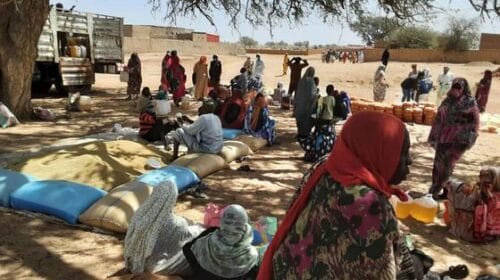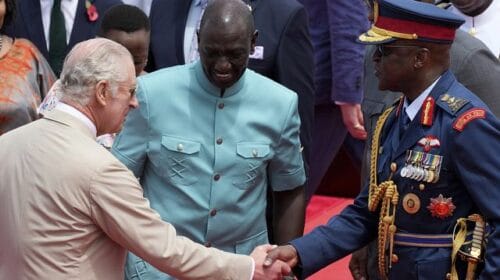Ghana: Resorting to handshake for Child Online Safety

Every year, 1 billion children continue to be exposed to violence and more than 200 million of these children are sexually abused and exploited.
This means that close to 50% of all children are victims of violence, yet unfortunately this issue remains a hidden global epidemic.
Increasingly much of this sexual abuse takes place online or is captured and digitally distributed. In this case, the internet is an enabler of abuse and exploitation.
Children and young people are posting emotional content on social media for attention and support from friends. The result of this could be disheartening or supportive.
Imagine file-sharing service enabled on your iPhone or Android to share photos, videos, contacts and other documents becoming the medium used by ill-motive people to harass your children and young people as well as adults?
Just as it is required of parents to supervise children and young people when they use the digital space. Teachers should equip them with the requisite knowledge and skills to be good digital citizens.
Government is expected to make policies which could inure to the benefit of children and young people. And of course the children and young people themselves will be active participants in all of these.
Does that really happen?
Until telecom companies have children at the back of their minds, until Food and Drugs Authority have the interest of children at the back of their minds, until teachers are diligent in their role to develop and empower children adequately, until parents stop robbing children and young people off their childhood and assume they were ones like them when in actual fact that is not true, until social welfare and law enforcement make reporting and access to their protocols and procedures what it ought to be so children can access easily without fear of being victimized or their data poorly handled.
Until children are allowed to express their views without adults directly or indirectly misrepresenting and influencing them to speak.
We would not be fulfilling our obligations as adults whose roles are the three Ps thus: Provide for them, protect them and allow them to participate not forgetting their responsibility towards the society and others.
Sadly, we know from the experience of developed markets that, without proper safeguards in place, the Internet can be a difficult and – for some – a dangerous environment in which to grow up.
Children are our future they say and it has become a cliché for everybody including the private sector players who do not have children at the back of their mind when they are designing and creating content, product or even a service.
If the safety of children is paramount to us as people; it is important we consider the handshake approach at the idealization stage.
Handshake implies that safeguards are built into the systems at the point of manufacturing, so that when companies at the point of developing technology software pay attention to the safety of children and young people.
Nice Net November (#NiceNetNovember) is an initiative of Child Online Africa (COA) to sustain discussion on safe and responsible use of the digital space by all. The focus for 2019 is on Digital Literacy and Safety By Design principles and supported by the Africa Digital Rights Hub.




